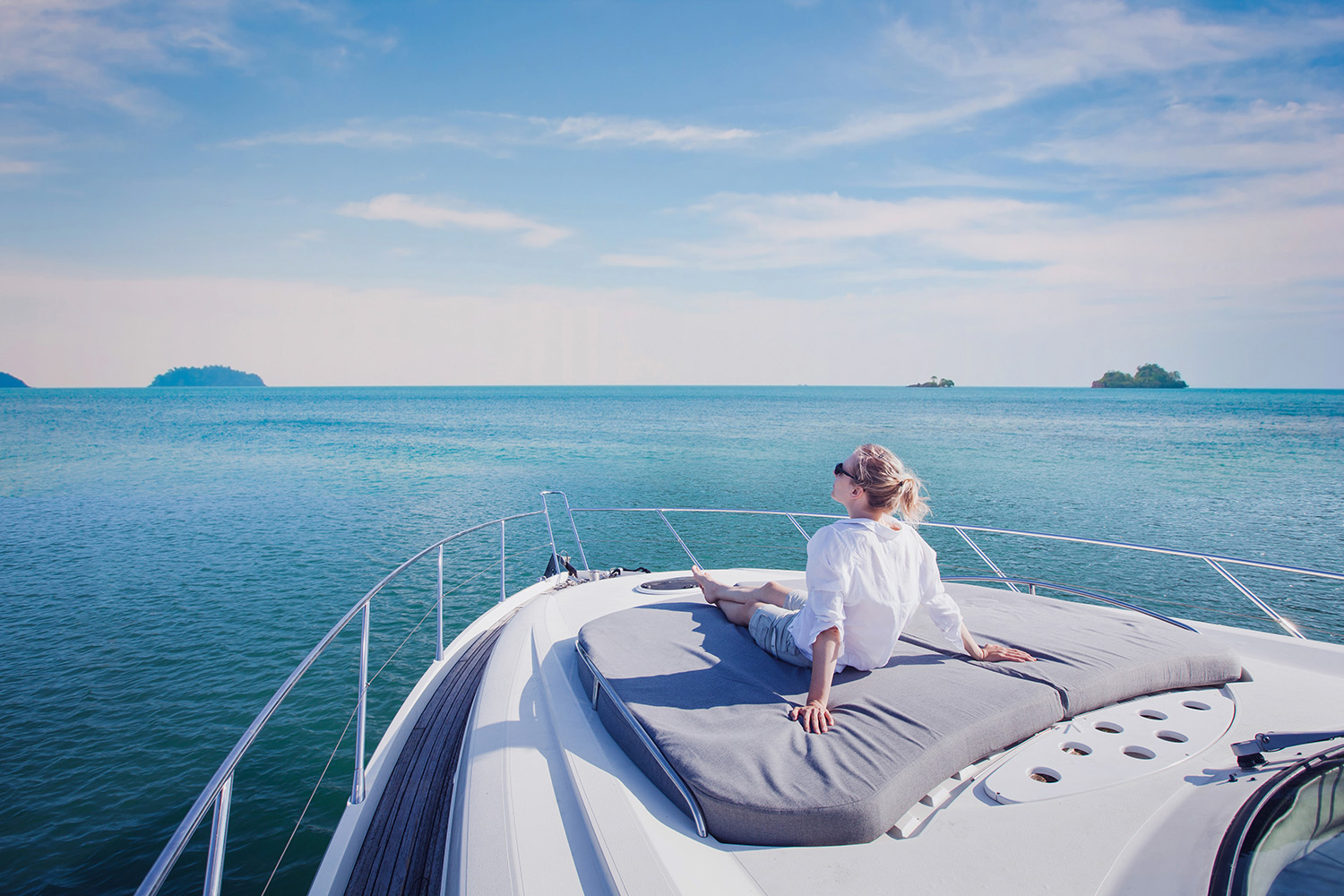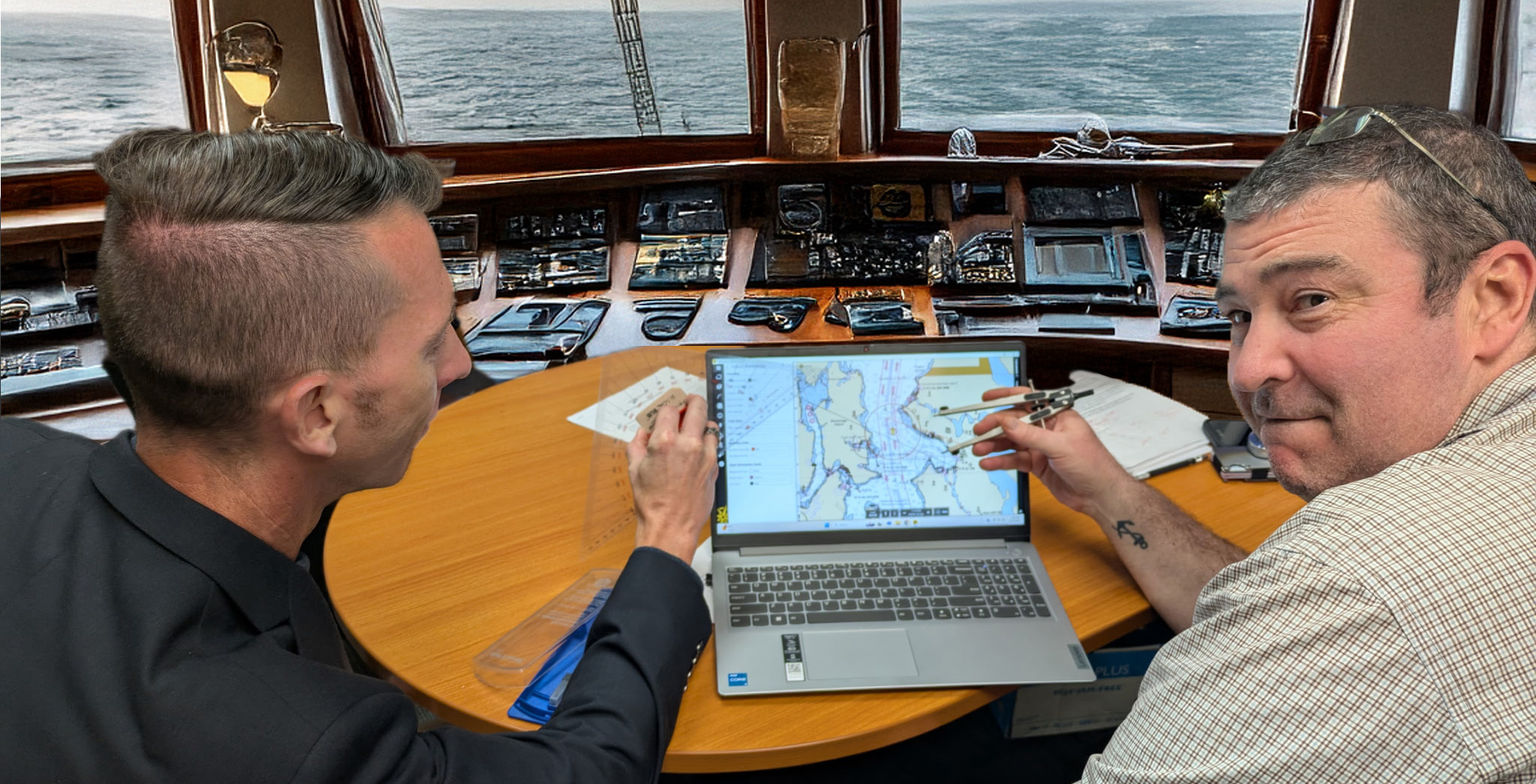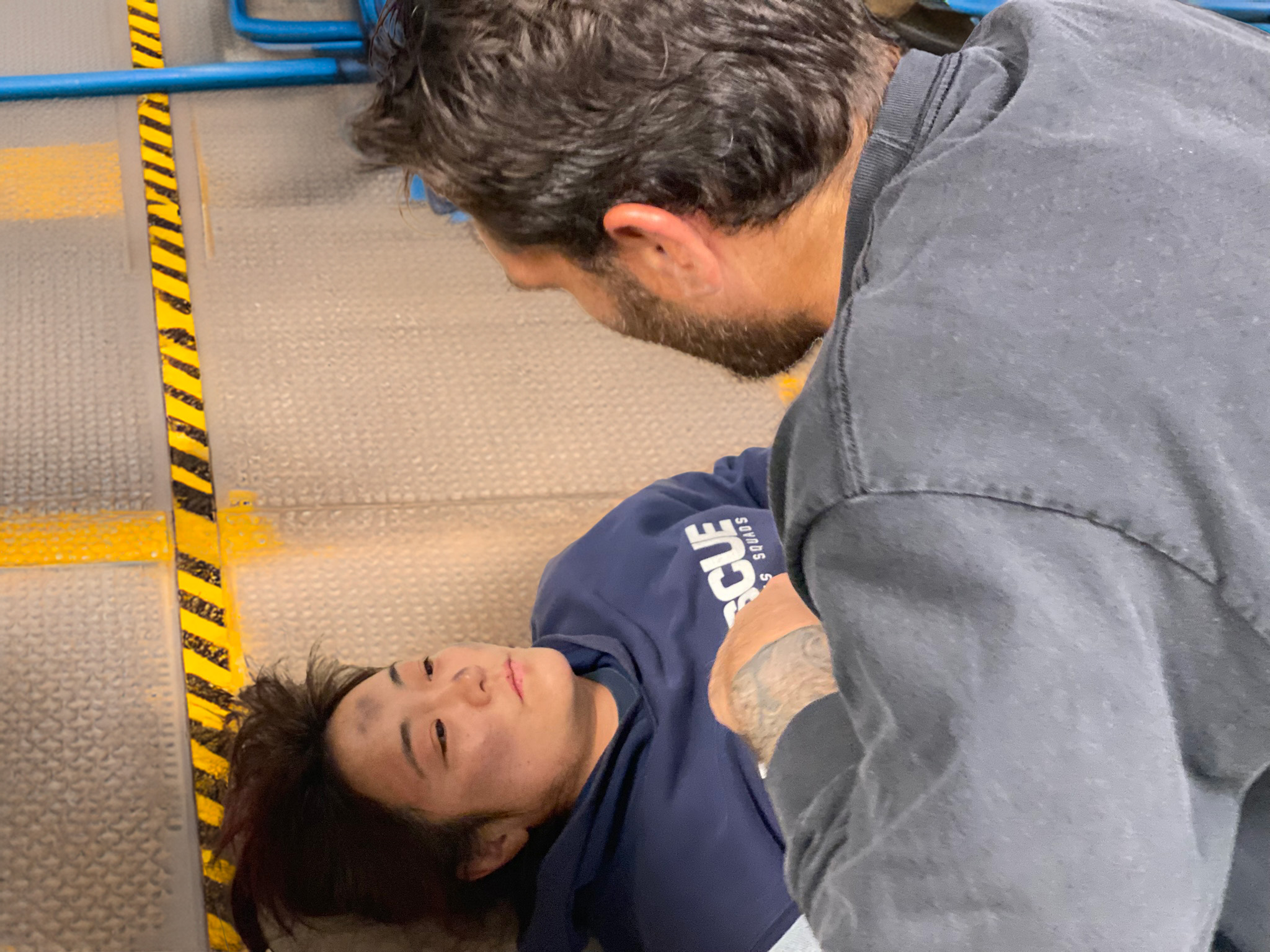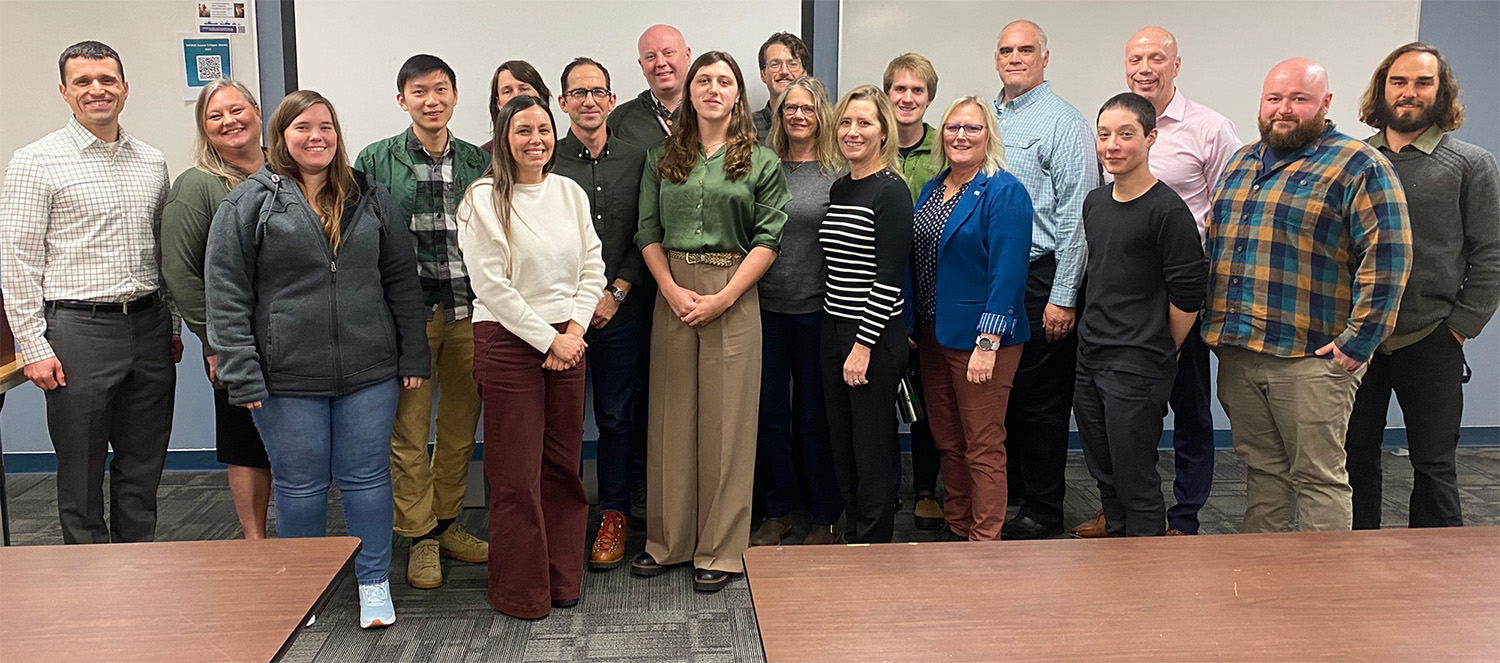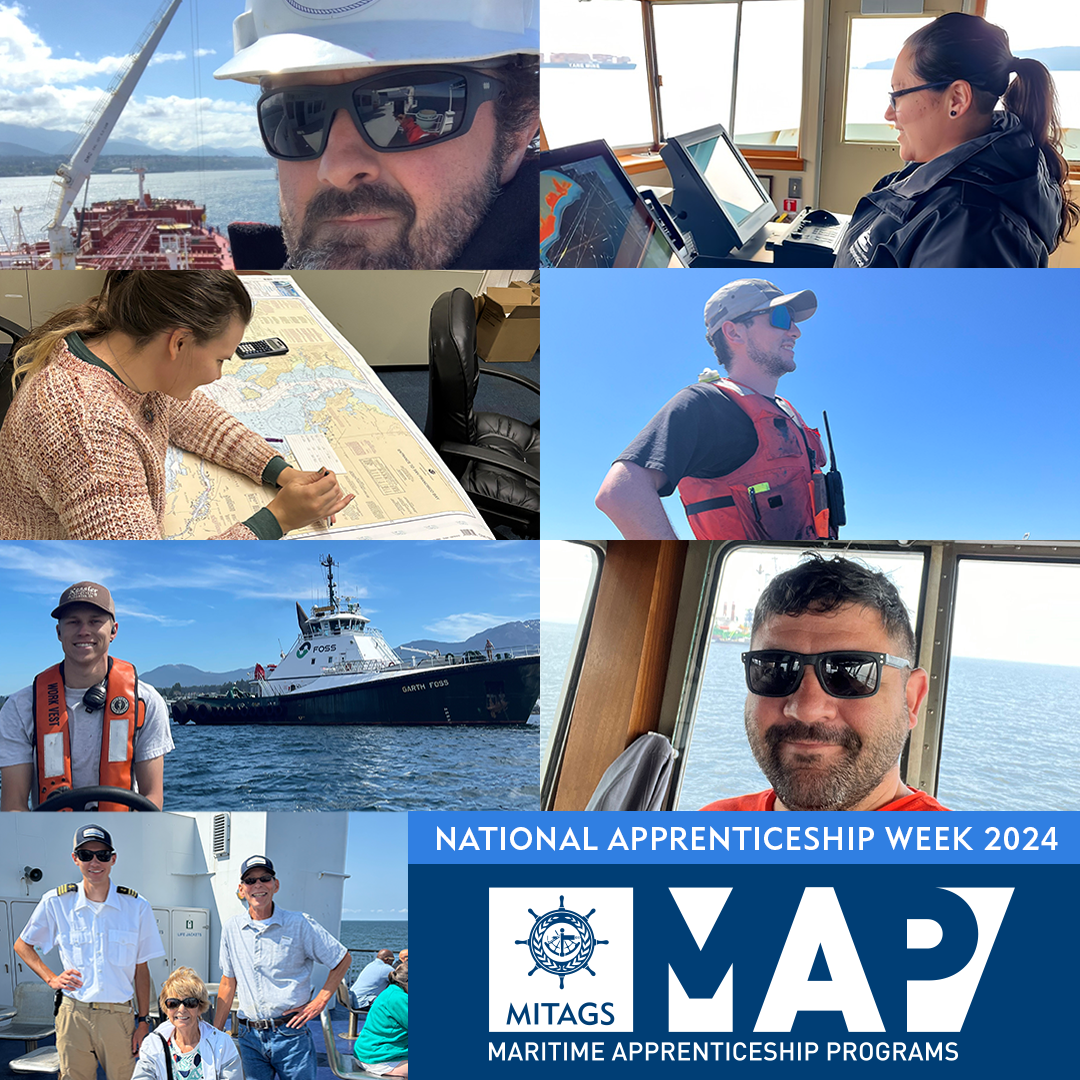Helpful Links & Resources
International Organization of Masters, Mates & Pilots
Members of the International Organization of Masters, Mates & Pilots (MM&P) include the world’s best qualified and most highly trained professional mariners.
MM&P represents: US-Coast Guard licensed masters and mates on US-flag commercial vessels on international voyages, on the inland waterways and on civilian-crewed ships in the federal government fleet; masters, mates and other marine personnel who work on tugs, ferries, dredges and harbor tour vessels throughout the United States, including in the San Francisco Bay, on New York City ferry systems and state ferry systems in Alaska and Washington State.
MITAGS is the official training facility for the MM&P.
U.S. Coast Guard
Since 1790, the Coast Guard has safeguarded the American people and promoted national security, border security, and economic prosperity in a complex and evolving maritime environment. The Coast Guard saves those in peril and protects the Nation from all maritime threats.
As a branch of the U.S. Armed Forces, a law enforcement organization, a regulatory agency, a member of the U.S. Intelligence Community, and a first responder, the Coast Guard employs a unique mix of authorities, broad jurisdiction, flexible operational capabilities, and a network of partnerships. The Coast Guard is the principal Federal agency responsible for maritime safety, security, and environmental stewardship in U.S. ports and inland waterways, along more than 95,000 miles of U.S. coastline, throughout the 4.5 million square miles of U.S. Exclusive Economic Zone (EEZ), and on the high seas.
USCG National Maritime Center
As a world class credentialing program, the NMC staff of highly competent and devoted professionals ensures a safe, secure, economically viable and environmentally sound Marine Transportation System manned by fully qualified U.S. mariners. They accomplish this vision with leading edge technology, strengthened by continuous improvement and stakeholder partnerships.
Serving the Merchant Mariner
We value the mariner, respect their experience, are considerate of their time, want to get it right the first time and protect personal information. We are listening to mariners’ suggestions for improvement, and we will find a way to say yes when legally and reasonably possible.
NMC Authority
The National Maritime Center is granted authority through federal mandates listed in the Code of Federal Regulation (CFR), NVIC, and Coast Guard Policy Letters. NMC is a headquarters unit under the United States Coast Guard who works under the auspices of the Department of Homeland Security.
Future of NMC
One day mariners should be able to upgrade or renew their credentials on demand from any cyber location in the world, much like you can access your bank account and withdraw cash from an ATM, or pay your taxes online. The Merchant Mariner Secure Electronic Application System will allow access to mariner records or applying online from anywhere in the world.
U.S. Department of Transportation Maritime Administration (MARAD)
As the DOT agency responsible for America’s waterborne transportation system, the Maritime Administration (MARAD) is busy. At our core, we support the technical aspects of America’s maritime transportation infrastructure — things like ships and shipping, port and vessel operations, national security, environment, and safety. We promote the use of waterborne transportation, and ensure that its infrastructure integrates seamlessly with other methods of transportation. MARAD also maintains a fleet of cargo ships in reserve to provide surge sea-lift during war and national emergencies, and is responsible for disposing of ships in that fleet, as well as other non-combatant Government ships as they become obsolete.
Beyond that, we work hard to maintain the overall health of the U.S. Merchant Marine. Commercial mariners, vessels, and intermodal facilities are vital for supporting national security, and so the agency provides support and information for current mariners, extensive support for educating future mariners, and programs to educate America’s young people about the vital role of maritime operations in the lives of all Americans.
Ship Operations Cooperative Program (SOCP)
The Ship Operations Cooperative Program (SOCP) is a 501(c)6 nonprofit and nonpartisan member-driven organization of industry leaders to promote and improve the maritime industry through collaboration, facilitation, recommendation, and innovation. We are not a lobbying organization. Our members are the primary maritime stakeholders that include owning and operating companies, labor, training and educational professionals, mariners, regulatory, government and non-government organizations.
U.S. Department of Veterans Affairs
VA carries out four specific missions to make good on that commitment.
Veterans Health Care: VA’s Veterans Health Administration is the largest integrated health care network in the United States, with 1,255 health care facilities serving 9 million enrolled Veterans each year.
Veterans Benefits: Veterans can earn a range of benefits that help them transition back to civilian life in the country they fought to defend. Through the Veterans Benefits Administration, VA helps servicemembers transition out of military service, and assists with education, home loans, life insurance and much more.
National Cemeteries: The job of the National Cemetery Administration is to make sure those who served this nation are never forgotten. NCA provides dignified burial services for Veterans and eligible family members by maintaining more than 150 cemeteries as national shrines and provides digital memorialization at the Veterans Legacy Memorial to commemorate their legacy, service and sacrifice to our nation.
The Fourth Mission: VA’s “Fourth Mission” is to improve the Nation’s preparedness for response to war, terrorism, national emergencies, and natural disasters by developing plans and taking actions to ensure continued service to veterans, as well as to support national, state, and local emergency management, public health, safety and homeland security efforts.
National Hurricane Center
The National Hurricane Center (NHC) is a component of the National Centers for Environmental Prediction (NCEP) located at Florida International University in Miami, Florida. The NHC mission is to save lives, mitigate property loss, and improve economic efficiency by issuing the best watches, warnings, forecasts, and analyses of hazardous tropical weather and by increasing understanding of these hazards. The NHC vision is to be America’s calm, clear, and trusted voice in the eye of the storm and, with its partners, enable communities to be safe from tropical weather threats.
TWIC Information
The Transportation Worker Identification Credential, also known as TWIC®, is required by the Maritime Transportation Security Act for workers who need access to secure areas of the nation’s maritime facilities and vessels. TSA conducts a security threat assessment (background check) to determine a person’s eligibility and issues the credential. U.S. citizens and immigrants in certain immigration categories may apply for the credential. Most mariners licensed by the U.S. Coast Guard also require a credential. Regarding card usage and facility access requirements, please contact the U.S. Coast Guard.
APCA Drug Testing Consortium
Drug testing started under President Ronald Reagan after a Navy pilot crashed into the USS Nimitz while landing in 1981. Mandatory drug testing began for safety-sensitive Federal executive and civil service employees, and at the time, a majority was found to be under the influence. Due to this, President Reagan used the Commission on Organized Crime to bring the policy to the private sector in 1986. Since that time, the American Professional Captains Association has pioneered the drug testing program and has assured compliance for over 10,000 mariners and employers from Alaska to the Caribbean; from Maine to California and everywhere in between.
At a very competitive annual cost, we pay for all pre-employment and random tests our members receive. We cover all associated costs for those tests including the lab fees, Medical Review Officer (MRO) fees, collection fees, and administrative fees. As a way of saying thank you, we offer a discounted cost for members who renew their memberships. We are here to answer questions and make sure every mariner and employer has the documents they need to prove compliance with the Federal Regulations. Enroll Online Today or Contact APCA!
MaritimeTV
As a pioneering global Internet broadcasting and streaming media company, TV Worldwide (www.TVWorldwide.com) developed the first Internet TV network of community-based interactive channels, including Maritime TV (www.MaritimeTV.com) in 1999. Maritime TV is now the industry’s pre-eminent channel for live and archived webcasts and video presentations involving the commercial and military shipping industry. Programming on Maritime TV ranges from congressional hearings on important marine industry issues, to live interactive town hall and advocacy group meetings, to training on shipboard safety and operational fundamentals. Maritime entertainment-based programming is also available, including the entire collection of episodes from the renowned television series, ‘Victory at Sea’. Over time the channel has also evolved into a leading source of industry-specific information for media outlets in the mainstream press, such as USA Today. Maritime TV is pleased to serve this industry, so vital to the global economy, as the world’s first maritime TV channel.
Ocean Prediction Center
The OPC strives to provide the world’s best marine weather forecasts, preventing loss of life and property at sea. It an integral component of the National Centers for Environmental Prediction (NCEP) located at the National Center for Weather and Climate Prediction in College Park, Maryland.
OPC originates and issues marine warnings and forecasts, continually monitors and analyzes maritime data, and provides guidance of marine atmospheric variables for purposes of protection of life and property, safety at sea, and enhancement of economic opportunity. These products fulfill U.S. responsibilities with the World Meteorological Organization and Safety of Life at Sea Convention (SOLAS) [International Convention for the Safety of Life at Sea, 1960 and 1974].
OPC also provides forecast points in coordination with the National Hurricane Center (NHC) for Tropical Cyclones in the Atlantic Ocean E of 60W and N of 20N. In emergency situations OPC acts as a backup to the National Hurricane Center (NHC) and the Honolulu National Weather Service Office taking over the marine functions. Those offices also act as backups to OPC’s marine functions.
Military Sealift Command
The U.S. Navy’s Military Sealift Command is the premier provider of ocean transportation to the Department of Defense. The Command operates approximately 125 civilian-crewed ships that replenish U.S. Navy ships, conduct specialized missions, strategically preposition combat cargo at sea around the world and move military cargo and supplies used by deployed U.S. forces and coalition partners.
While we do play a critical role in support of our nation’s defense, our employees are not active duty members of the military. MSC civil service mariners (CIVMARs), the largest segment of our global workforce, are federal civil service employees.
All CIVMARs are employed by the Navy to serve MSC onboard naval auxiliaries and hybrid-manned warships worldwide, in peace and war. MSC exists to support the joint warfighter across the full spectrum of military operations. MSC provides on-time logistics, strategic sealift, as well as specialized missions anywhere in the world, in contested or uncontested environments.
We recruit transitioning military, merchant marines, maritime academy graduates, and skilled entry-level candidates to fill our maritime job opportunities. The MSC mission is big. So are the rewards for the CIVMARs who help us complete it.
Maritime Safety Guide by The Lanier Law Firm
Due to the vastness of the oceans, safety has always been foundational to the shipping industry. The shipping industry was one of the first industries to implement comprehensive international safety standards set forth by the International Maritime Organization (IMO). This maritime safety guide, written by The Lanier Law Firm, condenses the many rules and regulations ensuring safety across marine waterways.
The Lanier Law Firm is changing the approach to client care. Founded in 1990 by Mark Lanier, The Lanier Law Firm is committed to addressing client concerns with effective and often untraditional solutions. With more than 60 attorneys, our firm represents a broad array of clients from our offices in Houston, New York, and Los Angeles. Practice area includes maritime accidents.

